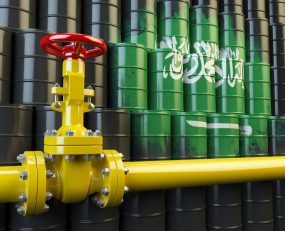
April 2nd 2018, Bath, UK: The opening up of Iran, a new de facto leader in Saudi Arabia and accelerated economic diversification initiatives across the board are offering a new set of logistics opportunities across the Middle East, according to Ti’s latest report, Middle East Logistics Investment Opportunities 2018.
The most significant change is Iran’s emergence from international isolation. It is one of, if not the biggest market opportunity for international LSPs in a decade. Following the removal of UN and EU sanctions in January 2016, international business has flocked to Iran en masse, with LSPs scrambling to pick up market share. Substantial investments have been announced in Iran’s oil & gas, chemical, automotive and renewables sectors in particular.
The report examines numerous trends affecting logistics in the region, supported by a range of vertical sector logistics forecasts, including oil & gas, retail and e-commerce logistics for Iran, the UAE and Saudi Arabia. For Iran and all GCC countries, Ti has also sized and forecasted their core logistics markets – express and parcels, air and sea freight forwarding and contract logistics – to give a clear idea of the scale of each market in 2017 and their expected pace of development to 2021. The report also identifies the leading LSPs in the region, providing LSP rankings by revenue tier.
The market sizing and forecasts for Iran reflect the serious investment committed, but also the difficulties of operating in the country. Iran is generally an opaque place to do business, corruption is extensive and there is political opposition to letting foreigners invest in Iran’s natural resources. In addition, the Trump administration maintains a hostile stance to the country’s leadership, largely prohibiting US companies doing business with Iran.
Professor John Manners Bell, Ti’s CEO, stated: “Some analysts have compared the opening up of the Iranian market to that of Russia at the end of the Cold War. There is no doubt that the partial ending of sanctions on the country have made it very attractive to international investors, eager to exploit its well-educated middle class, its oil and gas resources as well as its geographical location. However, to say that challenges exist to future investment would be an under-statement. Undoubtedly, there are enormous opportunities for investment in Iran, but they are not for the faint-hearted or inexperienced.”
Saudi Arabia is also undergoing something of a transformation, putting together an ambitious package of reforms in its economic development masterplan, Vision 2030. Crown Prince Muhammad bin Salman (commonly known as MbS) is the architect of the plan and became de facto leader of the country in June 2017. Vision 2030 aims to raise the contribution of the private sector from 40% to 65% of GDP, the share of SMEs from 20% to 35% of GDP, raise the share of non-oil exports in non-oil GDP from 16% to 50% and raise its ranking in the World Bank’s Logistics Performance Index from 49 to 25. In other words, completely transform the economy. While many doubt whether these ambitions are completely realistic, Saudi Arabia has made its intent clear and its reforms should entail many new logistics opportunities.
A crucial step for advancing logistics across the region will be the liberalisation of investment rules. Prior to the removal of sanctions, foreign investment in Iran was scarce. Its legal system is not well designed for cross-border business transactions, the dispute settlement system is weak, and funds can’t be transferred and repatriated at market exchange rates. In Saudi Arabia, land transportation is off limits to foreign LSPs and there are varying restrictions across other sectors. A mix of measures are making investment less attractive while other reforms are improving the picture. Even in the UAE, outside free zones, investment regulations are somewhat restrictive. Encouragingly, the trend across the region is towards liberalisation. The report details the investment environment across the key markets of Iran, the UAE and Saudi Arabia and highlights key recent investment announcements by sector.
In general, economic institutional reform is required. In too many countries, market access is inadequate, monopolistic and oligopolistic behaviour is all too common, whilst areas such as customs remain problematic. These should be major areas of focus going forward and encouragingly, they appear to be.
Ti Economist, David Buckby, remarked: “Overall, the Gulf region clearly faces many challenges. Following the oil price crash, the economic picture has fundamentally changed. With Qatar’s blockade and tensions between Saudi Arabia and Iran ongoing, investors also face elevated political risk. While these factors have damaged certain logistics opportunities, they have also accelerated diversification plans, which have already and will continue to create new business for LSPs.”
To download Ti’s new report, or for further information on the report, click here.
For any enquiries, please contact Ti’s Business Development Manager, Michael Clover +44 (0) 1666 519900 [email protected]
Source: Transport Intelligence, March 29, 2018